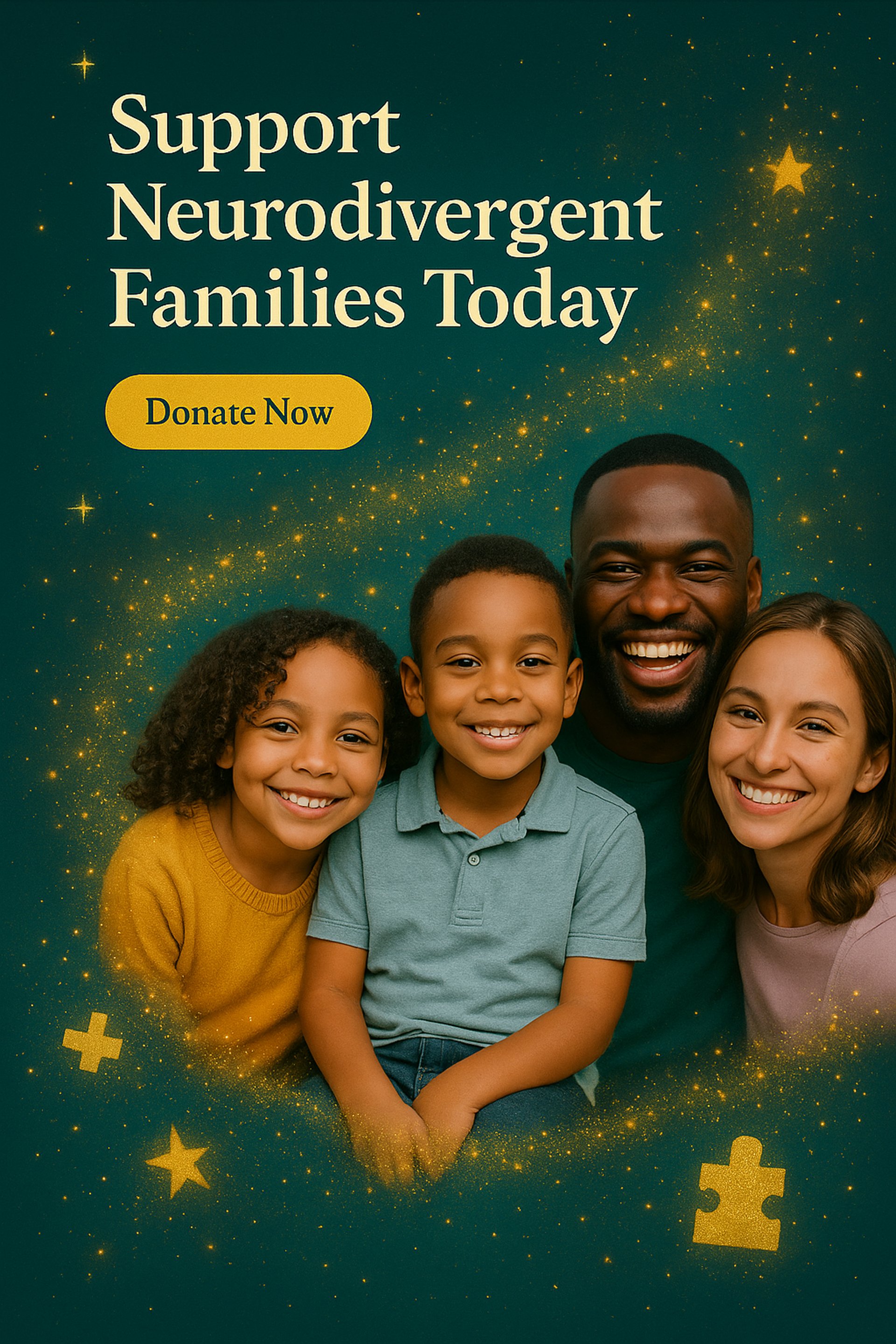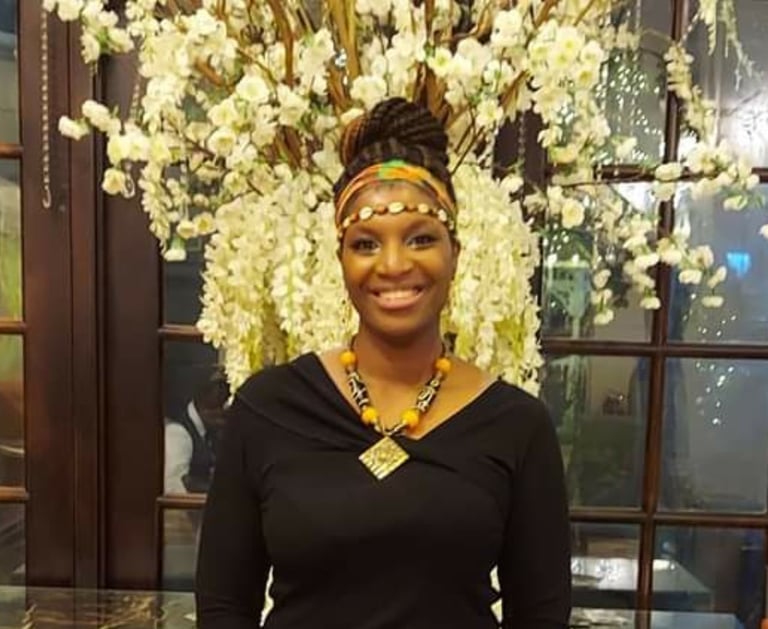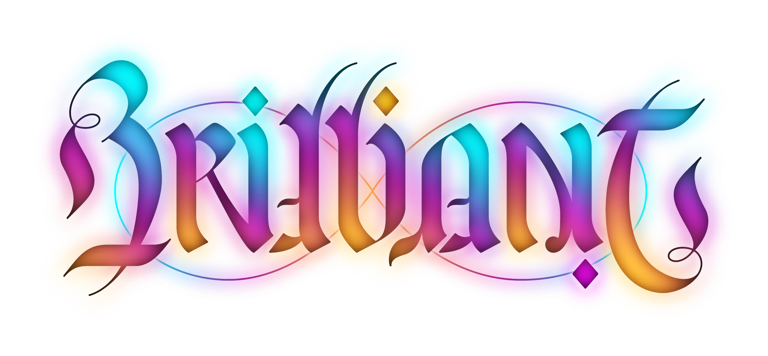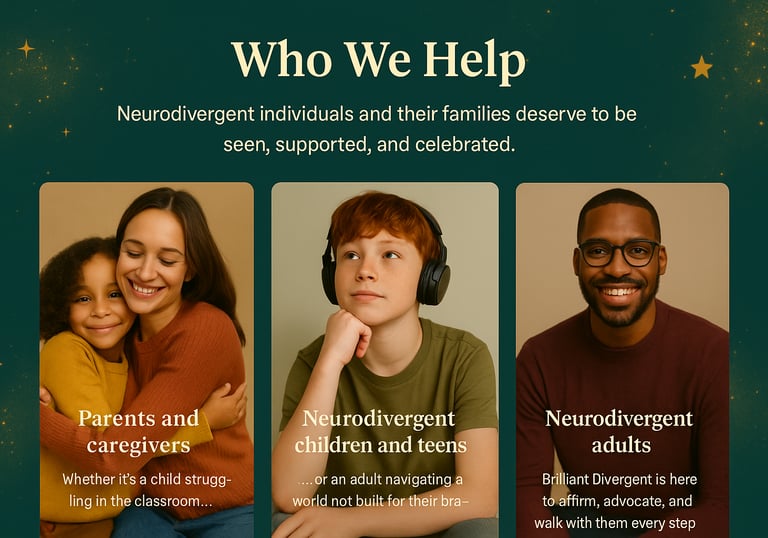
Support Neurodivergent Families Today

About the Founder
I didn’t start Brilliant Divergent because it was easy.
I started it because it was necessary.
As a mother raising brilliant, neurodivergent children in a world that wasn’t built with them in mind, I spent years searching for resources, understanding, and community — and kept coming up short.
So I stopped waiting. I built what we needed.
Brilliant Divergent was born from lived experience, late nights, and the unshakable belief that our kids —whether they are of the carbon age of a child, or the carbon age of an adult — deserve more than survival.
They deserve to thrive.
— Alexis Regnier
Founder, Brilliant Divergent


The faces of our mission: families, caregivers, and neurodivergent brilliance.
Brilliance in Every Face

Mission Statement
Brilliant Divergent exists to illuminate the brilliance within neurodivergent children and adults—not by fixing what was never broken, but by dismantling the systems that refuse to see them.
We are a parent-led, soul-rooted nonprofit dedicated to shifting the narrative around neurodiversity from one of limitation to one of power, beauty, and belonging. Through education, advocacy, and real-world support, we create space for families, caregivers, and individuals to rise—loudly, unapologetically, and on their own terms.
Because when you invest in neurodivergent lives, you’re not donating to a cause.
You’re funding a revolution in how the world sees human potential.
We Speak Up

Our services
At Brilliant Divergent, we don’t just offer services — we deliver lifelines. Through bold advocacy, radical education, and soul-deep community, we meet families where they are and lift them toward where they deserve to be.
Advocacy
We speak where others stay silent.
Brilliant Divergent challenges the systems that fail to see neurodivergent brilliance. We show up in school board meetings, public forums, and policy rooms — not just to be heard, but to reshape the conversation. Our advocacy isn’t polite; it’s precise, passionate, and rooted in lived experience. Because silence has never protected our children — but truth has.


Education
We don’t just inform — we transform.
We teach schools, workplaces, and communities how to unlearn bias and embrace neurodiversity as a strength, not a shortcoming. From workshops to resource kits, we equip the world with language, tools, and truth. This isn’t checkbox training. This is re-education for a more human world.
Because no one should have to navigate this alone.
We build safe spaces — not just online, but in living rooms, classrooms, and community halls. Whether you're a parent searching for answers, or an adult finally being seen for the first time, Brilliant Divergent connects you to people who get it. We replace isolation with community. Shame with celebration. Survival with support.
Support & Connection






“I thought I was a bad parent. Turns out, my child was just brilliant in a world that didn’t understand them.”
– A dad learning to see his child differently
“We didn’t need fixing. We needed understanding. This community reminded me that we belong.”
– A Brooklyn parent, after years of isolation
“I used to cry in my car after every IEP meeting. Brilliant Divergent didn’t just give me resources—they gave me the courage to fight back.”
– A mother who finally found her voice


